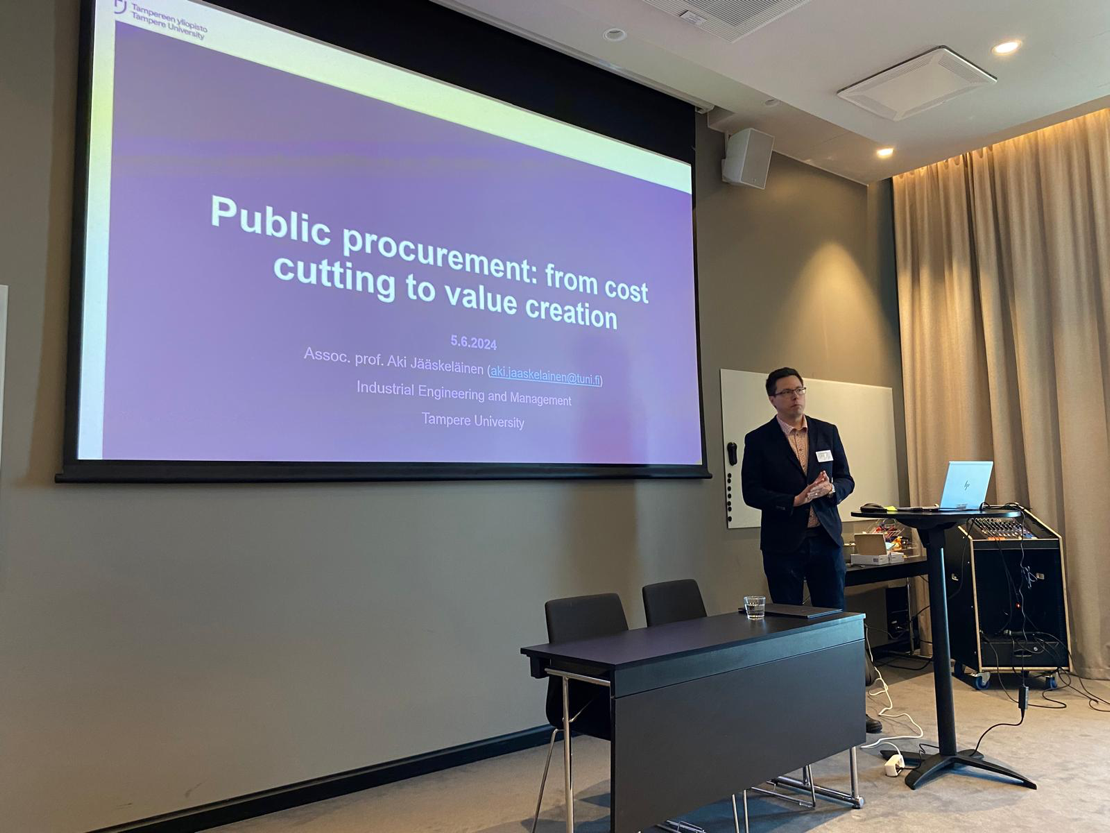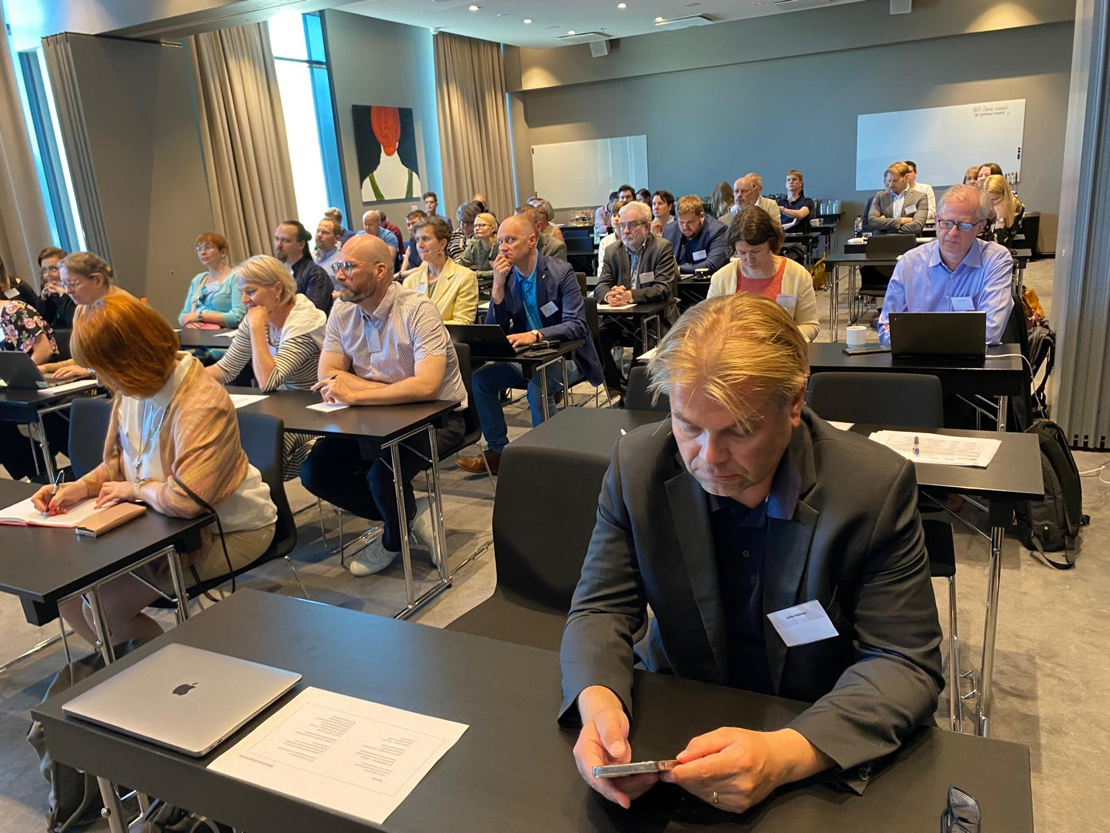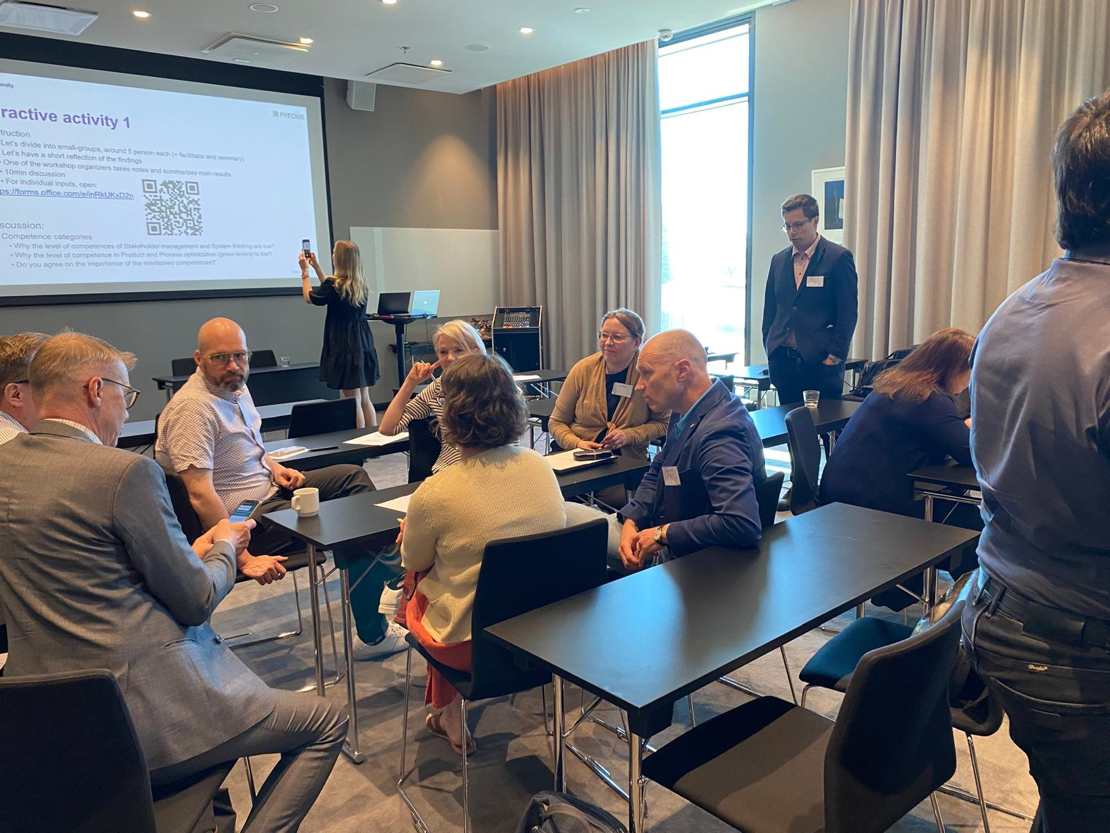The Multiplier Event for the PRECIUS project, held on June 5th, 2024, brought together public procurement professionals, SMEs, and environmental engineers to explore and discuss future competence needs in public procurement. This interactive event was organized to highlight the survey results from the PRECIUS project, an Erasmus+ initiative aimed at developing critical skills for sustainable innovation within public procurement sectors.

The event agenda covered several key aspects, beginning with an introduction to the PRECIUS project and a comprehensive overview of survey results focusing on essential competences like stakeholder management, system thinking, and green lever techniques. The findings underscored the challenges in areas such as product and process optimization, networking with key stakeholders, and cooperation with suppliers, often due to limited resources and organisational constraints. These discussions provided a platform for identifying gaps in existing competencies and the need for targeted skill development.
Interactive sessions encouraged small group discussions, where participants reflected on the survey results and brainstormed solutions to improve skill levels in stakeholder management and sustainability-focused competences. Additionally, the workshop gathered input on the most effective mechanisms for developing these competencies, including mentoring programs, practical learning experiences, and collaborative partnerships.

The workshop on public procurement competencies identified several key insights and challenges among participants. Notably, there was a consensus on the need to improve competencies in stakeholder management and system thinking. Many public procurement professionals lack advanced skills in stakeholder engagement, largely due to limited resources, high workloads, and a focus on procedural rather than relational aspects of procurement. This often leads to viewing procurement as a strictly legal process, which reduces attention to stakeholder dynamics and effective communication.
System thinking, or understanding interconnected sustainability elements, also surfaced as an area needing development. Participants agreed that procurement roles often lack strategic vision and sufficient training in managing the complexities of sustainability within procurement frameworks. Discussions suggested that more structured dialogue and leadership training could enhance this competency, which is vital for aligning procurement practices with broader sustainability goals. Competencies, particularly in product and process optimization, were also identified as underdeveloped. This is partly due to the sector-specific nature of these skills, as well as limited access to training on product properties and sustainable materials. Participants expressed that proximity to production processes and a standardized sharing of best practices could better support these competencies, allowing procurement professionals to advocate for and implement sustainable solutions more effectively
The outcomes of this workshop serve as a foundation for future training modules, which will be developed to address identified skill gaps. These modules will be tailored for public procurement professionals, SMEs, and environmental engineers, ensuring a collaborative approach to fostering sustainable innovation in line with the EU’s Green Deal objectives.










